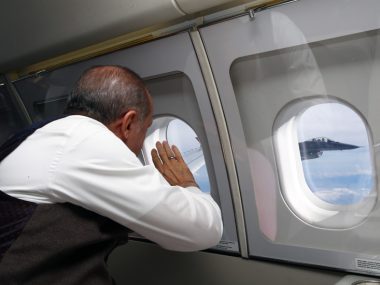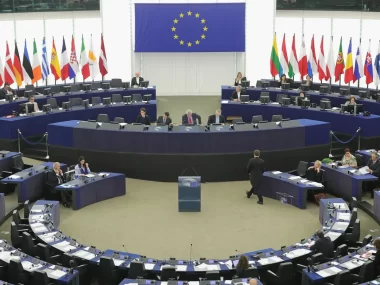|
Neubauer Coporation
Getting your Trinity Audio player ready...
|
First of all, it was Saudi Arabia that called on all parties to the conflict to show restraint in order to prevent further escalation of the war. Egypt followed the same example. Jordan and Oman are also concerned about the latest developments.
The Iraqi government condemns the Western air strikes on Houthi positions in Yemen, but at the same time makes it clear that free shipping in the Red Sea is necessary.
This reluctance is no coincidence. It has to do with the self-interests of the states mentioned.
Bad for business
Leading the way is Saudi Arabia, which has waged a bitter fight against the Houthi rebels in Yemen for years. Crown Prince Mohammed bin Salman will not be unhappy if someone else fights the rebels in the southern neighboring country.
The Saudi royal family is also trying to attract international investment for its prestige projects: a planned $500 billion future city in the Saudi desert would also be within range of the Houthi rebels’ missiles. The Saudi royal family is doing its best to avoid incurring the anger of the Houthis, but also the USA. Both would be bad for business.
Egypt is also suffering from the Gaza war. Tourism has collapsed and the numerous Houthi attacks on cargo ships in the Red Sea have forced shipping companies to reschedule. Egypt’s revenue from Suez Canal traffic has fallen by 40 percent. The Egyptian economy was already doing poorly before Hamas’ attacks on Israel on October 7th.
The Iraqi government, in turn, has its hands tied because, although it is clearly under Iranian influence, it is still dependent on aid money from the USA. This explains Baghdad’s position in condemning both the airstrikes on Yemen and the Houthi attacks.
Wildfire warning
So most Arab states have little choice but to show concern and warn of a conflagration in the Middle East, as Jordan is doing. This kingdom also depends on Western donors.
Just this week, a $1.2 billion loan from the International Monetary Fund was approved for Jordan. However, a clear position in favor of Western Middle East policy would direct popular anger towards the royal family. Over half of Jordan’s population is of Palestinian origin.
The Arab leaders are blocked. The consistent, ideological fight for the Palestinian cause is bad for the economy. On the other hand, a pro-American or even pro-Israeli position would be domestic political suicide.
The Gulf emirate of Bahrain, which was the only Arab state to provide logistical support for the air strikes against the Houthi rebels, may be out of line. Bahrain fought alongside Saudi Arabia against the Houthis and enjoys special protection thanks to a US naval base.
The Arab governments today are primarily concerned with economic interests. The ideological struggle for the Palestinians has faded into the background. It has become almost exclusively the cause of pro-Iranian militias.



























































